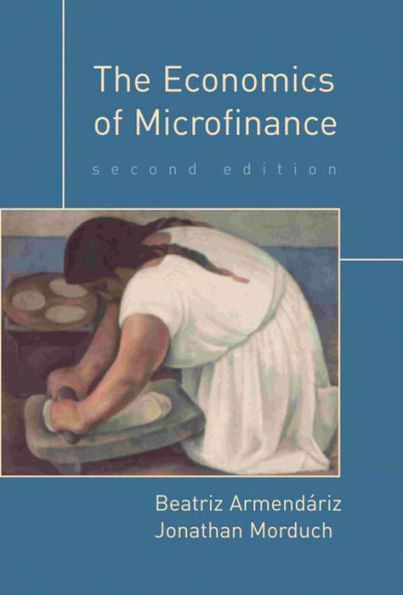Muhammad Yunus
Anyone interested in the science behind microfinance must read this impressive book. It is written with experience in microfinance and a deep understanding of economics.
Thomas Easton
An extraordinary book, inasmuch as it explains not only the underlying rationale of microfinance but, more broadly, of finance itself.
Esther Duflo
Microfinance is the most visible anti-poverty intervention of the last 25 years. It has been extremely successful in effectively delivering financial services to the poor, reaching more than 150 million clients (mostly women), often in countries where very little else works. This remarkable achievement has led many to believe that microfinance could be what everyone has been looking for: a transformative solution to the problem of poverty itself. And, not surprisingly, it has attracted its share of criticism, some even arguing that microfinance is no better than a new form of usury. It is high time that some serious analysis and solid evidence be brought to bear on this important and passionate debate. This is what Beatrice Armendáriz and Jonathan Morduch do masterfully in this book, drawing on very recent research and their own extensive experience. This should be required reading for microfinance friends and foes alike, or anyone wishing to understand what the issues really are.
Endorsement
Microfinance is the most visible anti-poverty intervention of the last 25 years. It has been extremely successful in effectively delivering financial services to the poor, reaching more than 150 million clients (mostly women), often in countries where very little else works. This remarkable achievement has led many to believe that microfinance could be what everyone has been looking for: a transformative solution to the problem of poverty itself. And, not surprisingly, it has attracted its share of criticism, some even arguing that microfinance is no better than a new form of usury. It is high time that some serious analysis and solid evidence be brought to bear on this important and passionate debate. This is what Beatrice Armendáriz and Jonathan Morduch do masterfully in this book, drawing on very recent research and their own extensive experience. This should be required reading for microfinance friends and foes alike, or anyone wishing to understand what the issues really are.
—
Esther Duflo, Department of Economics, MIT
From the Publisher
"Microfinance is the most visible anti-poverty intervention of the last 25 years. It has been extremely successful in effectively delivering financial services to the poor, reaching more than 150 million clients (mostly women), often in countries where very little else works. This remarkable achievement has led many to believe that microfinance could be what everyone has been looking for: a transformative solution to the problem of poverty itself. And, not surprisingly, it has attracted its share of criticism, some even arguing that microfinance is no better than a new form of usury. It is high time that some serious analysis and solid evidence be brought to bear on this important and passionate debate. This is what Beatrice Armendáriz and Jonathan Morduch do masterfully in this book, drawing on very recent research and their own extensive experience. This should be required reading for microfinance friends and foes alike, or anyone wishing to understand what the issues really are." Esther Duflo, Department of Economics, MIT






